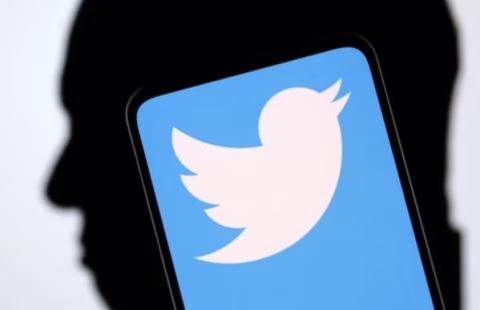
Half of respondents say brands which rely on humor feel ‘outdated’
DUBAI: Earlier this year, Twitter released its #RealTalk report based on first-of-its-kind research analyzing people’s attitudes on Twitter and what that means for brands.
The report is based on an analysis of more than 5,000 tweets across eight countries. It includes user tweets about brands as well as tweets sent by brands, including every tweet posted by 20 prominent companies over the last three years.
While other platforms like Facebook and Instagram struggle to maintain user growth and engagement rates, the results were mostly positive for Twitter. Conversations and brand engagement went up in the last year, and 70 percent of people said that “Brand Twitter” is one of the best parts of the platform.
“’Brand Twitter’ refers to Twitter’s own account, @twitter. Twitter’s brand voice echoes across all our brand channels such as @twitterforgood, the Business Resource Groups, @twittersports and @twittergaming, among others, allowing audiences to immediately recognize them while encouraging conversation with a more targeted audience,” Stephanie Terroir, head of Twitter Next MENA, told Arab News.
The term is also used to refer to other brand accounts on the platform. And Brand Twitter is here to stay with a massive 80 percent of those surveyed saying: “I don’t mind being sold to on social media, as long as it’s fun, useful, entertaining, informative or moves me in some way.”
The higher acceptance of brands on social media comes with higher expectations from brands. And these expectations have changed, especially since 2020.
Not too long ago, humor used to be one of a brand’s strongest characteristics on Twitter. “With funny and playful being such a strong tone type on Twitter — and often what the most famous brands from ‘Brand Twitter’ are known for — it was important to ask if this still feels right in today’s world,” said Terroir.
And 50 percent of users agreed that brands which rely on humor and jokes can feel outdated in today’s climate. “This is especially the case for people between 18-34 years old,” she added.
Moreover, 80 percent of people said that they expect “brands to evolve their tone with the times.”
People expect brands to join in the conversation and stand for something, especially since the world has faced significant political and social events over the past few years, including the Black Lives Matter movement in the US, economic strife in Lebanon and the worldwide impact of COVID-19 on jobs, families and health.
This is true both on Twitter and off it. A 2021 study by Edelman, which surveyed consumers from 14 markets including the UAE and Saudi Arabia, found that 86 percent of people expected brands to take actions beyond their product and business.
On Twitter, almost half (48 percent) of people surveyed said: “It’s more important now for brands to support economic, social, political or cultural issues, even when the issue doesn’t directly impact them vs. a year ago. ”
As brands decide to be part of the conversation, it is important for them to know which conversation to be part of, and how to be part of it.
Twitter asked people to assess a set of topics and determine whether a brand should tweet about them; could tweet about them even though it is not expected; or should absolutely not tweet at all.
A clear trend that emerged is that audiences are accepting of brands participating in almost any topic — as long as it is meaningful.
Terroir said: “The events of 2020 required brands to pivot and adapt to more curveballs than we have seen in recent years — and our understanding is that the brands who had a more multi-dimensional tone and brands who were better equipped to pivot or adapt their tone, fared better than those who relied on one-dimensional humor alone.”
She added: “Brands need to revisit the topics on which they can engage with. Today it’s less of a question of whether or not a brand should be connecting with culturally relevant topics in unique ways — but when, why and how.
It is also important for brands to know how and when to react to tweets. For example, Yorkshire Tea has built its brand identity around being “proper” — an unusual strategy on a platform where brands are trying to be funny or quirky.
So, when a user tweeted “I’m dead chuffed that Yorkshire Tea hasn’t supported Black Lives Matter,” the brand responded clearly and honestly, prompting an industry competitor to join in on support for the movement. This sparked a conversation with other tea brands, which joined in while tweeting the hashtag #solidaritea.
“Yorkshire Tea’s firm understanding of its role in culture and its ideas allowed the brand to authentically and respectfully engage in cultural and social conversations,” said Terroir.
Moving into 2022, Terroir advised brands to revisit their Twitter strategies, looking back on three key elements: The tone, the topics and the community.
She said: “Brands can start by identifying a more authentic tone that people may already associate with them. And don’t be alarmed by eliciting reactions. Being bold encourages emotional responses from the community, with the positive usually outweighing the negative.”












